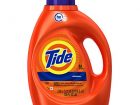I’ve been on a personal mission for quite a while. Actually, I’ve probably been on a number of personal missions, and probably for my whole life. The thing that strikes me today is my disgust of plastic shopping bags and my mission to avoid them at all cost.
And it’s cost that I think is important here. These bags that became so ubiquitously blemishing to peaceful hues of African landscapes where craggily Acacia trees, brambly bushes or even the lone tree in a desolate dessert with branches and limbs reaching like arms into the sky seem to grab the lofty plastic shopping bag with desperate attempts to capture the floating orbs that drift through the air due to the carelessness and passiveness of business and people. I fondly referred to them as African Flowers. For after riding hundreds of kilometers through empty yet seductively peaceful landscapes, I knew when I was near the next settlement: I started spotting those african flowers, nasty and ugly plastic bags of pale blue, pink, red and white. So ugly were parts of supposedly the idyllic paradise of Zanzibar, I felt a lump in my throat and even a tear coming on, not unlike the infamous ant-pollution/litter ad with the American Indian in full headdress that arguably gave environmental awareness its booster shot in the early 1970’s. The only thing worse in Zanzibar were the mountains of littered plastic water and soft drink bottles.

The African Flower?
While Africa perhaps disappointed me the most during my travels, it also surprised me and inspired me to realize we have more opportunities than problems when it comes to losing our addiction to plastic bags.
In South Africa the government initiated a law that requires supermarkets and other retail shops to charge for plastic bags, thus providing a contemplative moment for shoppers to consider. Instead of paper or plastic? It’s simply, do you need a bag? If so, it’ll cost you. Though the few cents perhaps is hardly a strong deterrent or motivation, it at least frames the idea. And in more affluent countries perhaps many would scoff at the cost and not think twice. That’s not the point. The plastic not only scars landscapes of our planet, they find a way into the animal kingdom and upsetting the balance of our ecosystem. Remember those circular plastic straps that held together six packs of cans of beer and soft drinks? I have memories of family and friends standing over the trash can cutting them into pieces so they wouldn’t end up in our environment chocking birds, interfering with swimming fish and more. Are they even used anymore?
Also in Africa, I found the countryside of Rwanda impeccably clean. No African Flowers and barely a hint of a carelessly tossed plastic bottle. I quickly learned this wasn’t an accident. The president implemented a country wide ban on plastic bags. Try to bring a plastic bag into the country and you’ll be forced to leave it at the airport—in a recycle bin. Plus, the last Saturday of every month is community clean up day. For a few hours on Saturday morning community leaders and residents scour their neighborhoods and clean up the trash. It’s not a law. I’m aware of no penalties. It has just become ingrained in the culture of this country that is tring so hard to not to forget the atrocities of the genocide some 16 years ago, at the same time trying to rebuild their country. With new ideas of community, togetherness and environmental awareness.
Beyond Africa, the first country in the world to ban plastic bags is Bangladesh. Floods in 1998 and 1999 the left 2/3 of the country submerged under water, were caused because discarded plastic bags clogged drains.
So, in Africa and Bangladesh, not only do you find some of the most harsh realities of why plastic bags must go away, but you also find several progressive policies aimed at cleaning and preserving those landscapes and wildlife that leave us in awe.
What can we do here, in the United States?
Mining through the wasteland, I am encouraged that globally our world neighbors as well as our domestic brethren are making small strides toward a plastic bag free planet:
1) China has banned production of “super thin” cheap flimsy bags since June 2008
2) China has banned shops from handing out free plastic bags since June 2008
3) San Francisco was the first city to ban petroleum-based plastic shopping bags; a reducation of 180 million bags which require some 800,000 gallons of oil to produce
4) Edmond, Washington was the first city in Washington to ban plastic bags. Sadly, Seattle’s ambitious effort was sacked by plastic industry lobbying money (see below)
5) Maui, Hawaii beginning in January 2011 will ban all plastic bags from the island.
6) The City of Los Angeles in a few months, starting July 2010 will ban plastic bags–unless state legislature imposes a fee on them.
And there are others. If you know of any other anti plastic bag initiatives or policies, please comment here. I’d like to update this sometime in the future.
Despite the seemingly progressive policies, sometimes things don’t work as planned. Despite efforts, some would rather fight than switch.
1) Seattle voter in August 2009 voted against a mandatory 20¢ per bag fee consumers would pay for plastic or paper. The city council approved the measure in 2008 but a media war and some $7 million dollars spent by the bag industry squashed the councils measure.
2) Many cities have been sued over such plastic bag bans. Earlier this year, California Appellate Court turned over Manhattan Beach, California’s ban. The court said the city didn’t due it’s due diligence in terms of enviornmental impact before enacting the ban. The suit financed and lobbied heavily by “The Save The Plastic Bag Coalition,” if you can believe such a thing exists–though clever marketing even though the money behind it is a group of plastic bag manufacturers and recyclers, perhaps, including Plastics Foodservice Packaging Group (PFPG)
Justice Mosk, not surprisingly, dissents. With the following opening line: “Requiring the small city of Manhattan Beach (City), containing a little over 33,000 people, to expend public resources to prepare an environmental impact report (EIR) for enacting what the City believes is an environmentally friendly ordinance phasing out the retail distribution (not use) of plastic carryout bags within the City and promoting the use of reusable bags (not paper bags) stretches the California Environmental Quality Act (Pub. Resources Code, § 21000, et seq.) (CEQA) and the requirements for an EIR to an absurdity.” — from Shaun Martin’s California Appellate Report
So you can see, several towns, cities and counties have tried to tackle the plastic bag issue. Some have initiated laws and regulation with ratcheting timeframes for accomplishing plastic bag reduction goals. But it’s not enough. Lobbying and self-interested plastics and petroleum firms have proved they’ll throw money in an effort to preserve their business. While I don’t favor government interference or overregulation, the last time I forgot to bring my own bags to the grocery store the handful of items I purchased were put into 5 plastic bags. That’s ridiculous. And I’m sorry. But planting a plastic bag recycling container at the entrance and exit doors of the market just isn’t going to do anything. We need to ban these bags. For good. Forever.
In the meantime, I’m going to do my part. I bring my cloth bags to any store I shop; for groceries, household, clothing, motorcycle parts & accessories, office supplies, computer stuff, music stuff, travel gear and more. And I hope that we can all work together and live and promote cleaner, healthier and simpler lives.
Will you join me?





Allan… for once, I agree with the Chinese. I would rather fill my pockets and carry stuff out to the car or home one by one than accept a plastic bag from a merchant. They should be illegal worldwide.
Yeah. It’s amazing. But I wonder about enforcement. Though there are many coutnries and US cities as noted that have started the process to ban the bag. The plastics and petroleum industry is throwing heavy money and stuffing the net with propoganda.
http://cei.org/articles/whole-truth-about-plastic-bags
http://www.thetruthaboutplasticbags.com/
http://savetheplasticbag.com/
http://news.santacruz.com/2009/09/06/coastal_cities_move_cautiously_on_bag_ban
Then there are the good….
http://www.reusablebags.com/facts.php?id=4
though both sides seems to be confused on messaging, Johnny A, just look at the mess these bags make and how many people just toss them into the trash when they come home from the store with a dozen bags – perhaps for the average family grocery shopping trip. It’s waste and ugly. That alone should be enough for these folks to get beyond the politics and see the future.
Yes the bags are a land fill deposit that should not be there, I would like to see a better bio degradable alternative. However, I have found that the multi-purpose usage of a hande poop bag for the pups is a better solution than buyint those perfumed bags made for the specific purpose. Plus on cold winter mornings the semi-full bags make for a nice hand warmer.
@Jim Branch — yes those natural hand warmer poly bags can by handy in the morning chill of a February California morning. I new approach to organic recycling, I’m thinking!